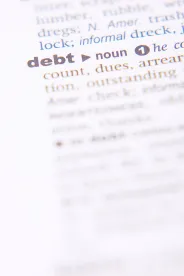A debt-collection law firm's overstatements in a state court complaint of $3,000 in the principal amount due and 0.315 percent in the interest rate were actionable under the Fair Debt Collection Practices Act (FDCPA) as material false statements, the U.S. Court of Appeals for the Ninth Circuit has ruled.
In Afewerki v. Anaya Law Group, the creditor that hired the law firm to collect the debt provided the law firm with the correct principal amount and interest rate. The law firm discovered the overstatements in the complaint while preparing its response to a demand for a bill of particulars from the debtor's attorney. The law firm asserted that the overstatements were inadvertent and filed a notice correcting the errors within 12 days of receiving the demand from the debtor's attorney.
In his lawsuit filed in federal district court, the debtor alleged that the overstatements violated the FDCPA and California's Rosenthal Fair Debt Collection Practices Act (Rosenthal Act). The district court granted the law firm's motion for summary judgment, concluding that the errors in the complaint were not material.
The FDCPA prohibits debt collectors from making false statements when attempting to collect debts. The Ninth Circuit described the requirement that a false statement must be material to be actionable under the FDCPA as a corollary to the "least sophisticated debtor" standard. According to the Ninth Circuit, a false statement is material if it could "cause the least sophisticated consumer to suffer a disadvantage in responding to the collection attempt."
While noting that a materiality inquiry focuses on the reaction of a hypothetical least sophisticated debtor rather than on the plaintiff's reaction, the Ninth Circuit observed that "the district court's determination that [the plaintiff] would not have proceeded differently absent the error might mean that he did not suffer actual damages and might disqualify him from obtaining such damages."
The Ninth Circuit treated the law firm's correction of the overstatements as irrelevant in determining whether the errors were material (but noted that the law firm had not attempted to invoke the FDCPA's bona fide error defense). In the court's view, the least sophisticated debtor in the plaintiff's position, concerned about being sued, "may well have simply paid the amount demanded in the complaint and would have overpaid by approximately $3,000." The court also raised the possibility that the state court case could have proceeded to a default judgment for the overstated amount, citing a California decision that held a creditor was not required to prove the amount sought was correct prior to entry of a default judgment.
The Ninth Circuit vacated the district court's grant of summary judgment in favor of the law firm on the FDCPA claim but affirmed its grant of summary judgment in favor of the law firm on the Rosenthal Act claim. While observing that the Rosenthal Act incorporates the FDCPA's false-representation prohibition, the Ninth Circuit concluded that the law firm could avoid civil liability under the Rosenthal Act by relying on its 15-day cure provision, and rejected the plaintiff's argument that 1999 amendments to the Act removed the cure provision.






 />i
/>i

